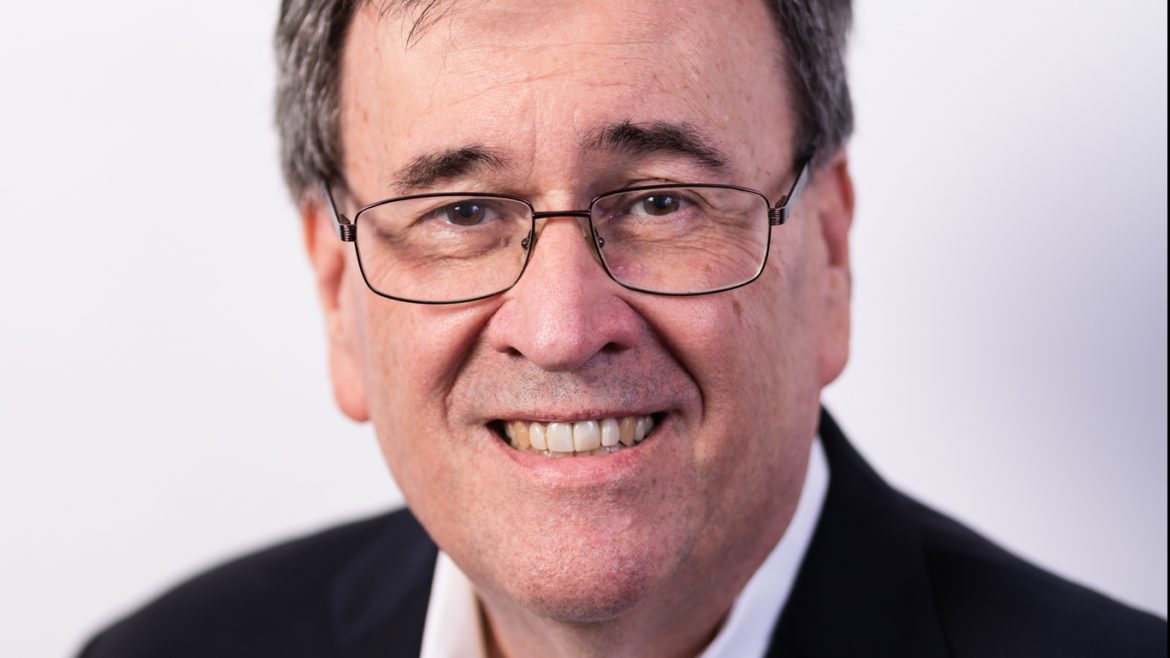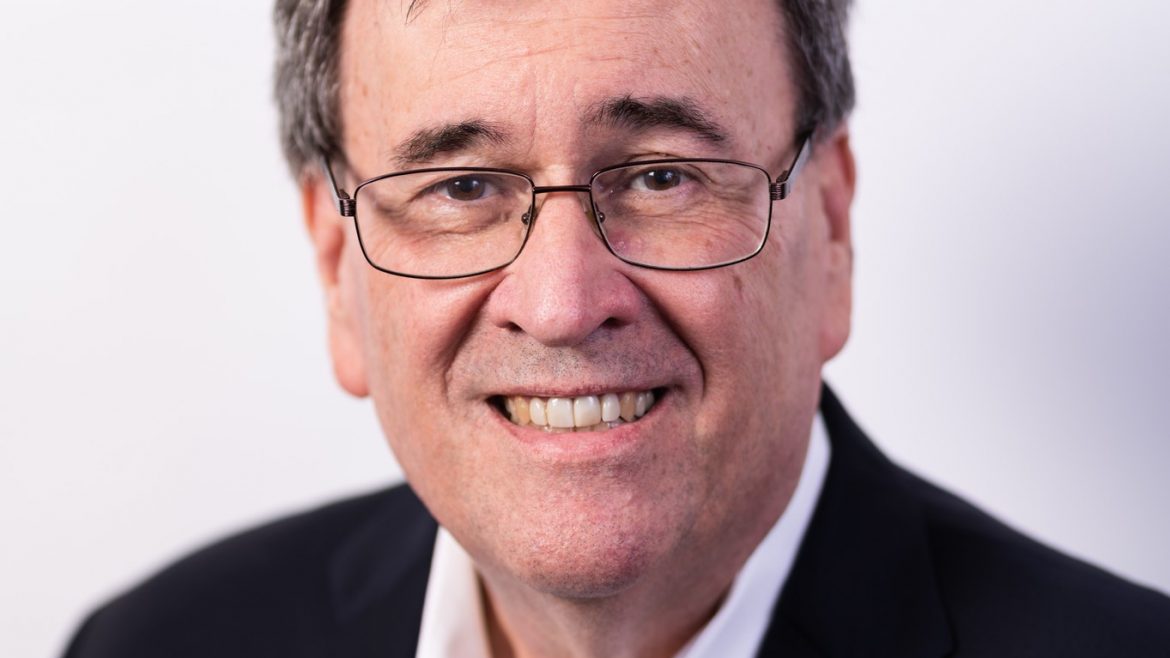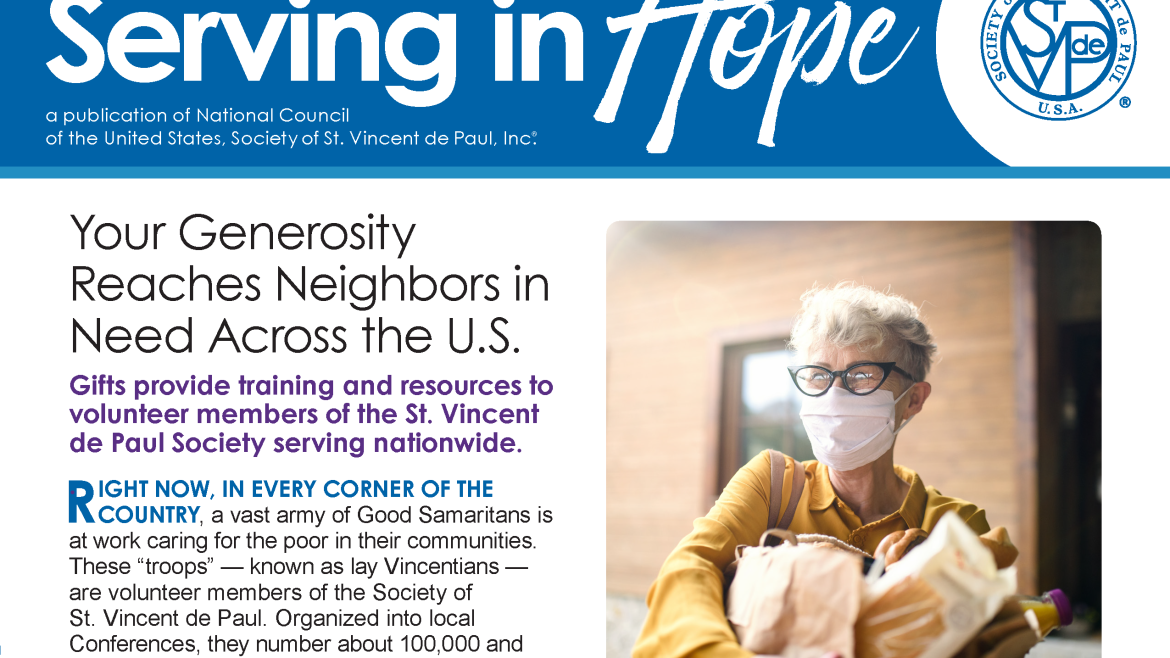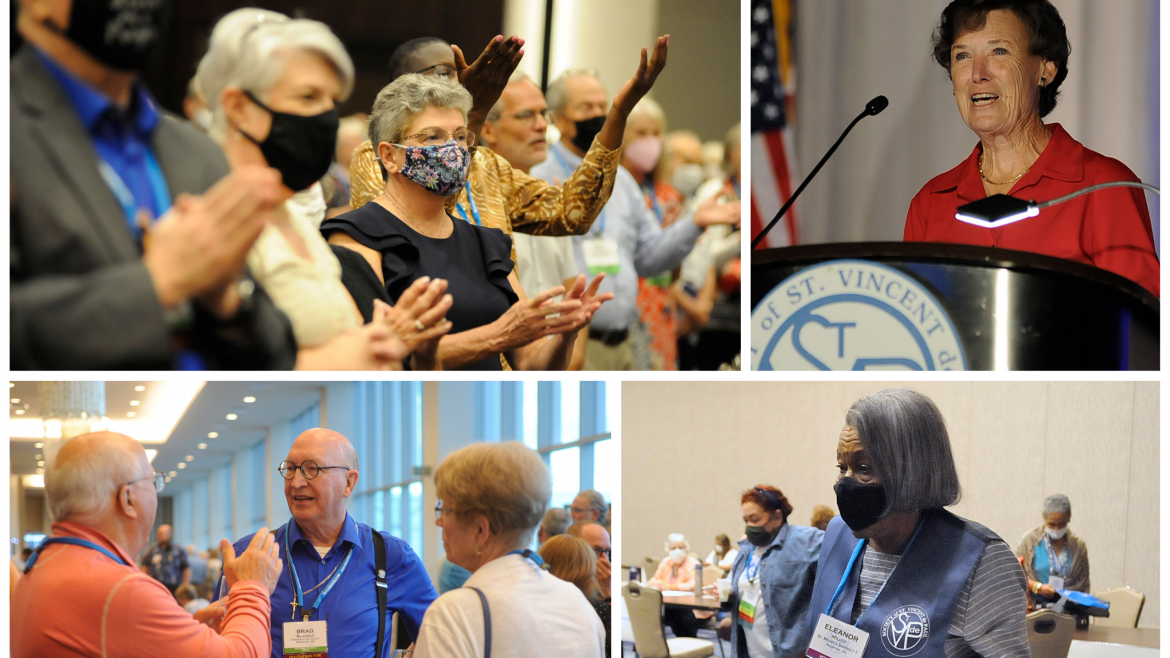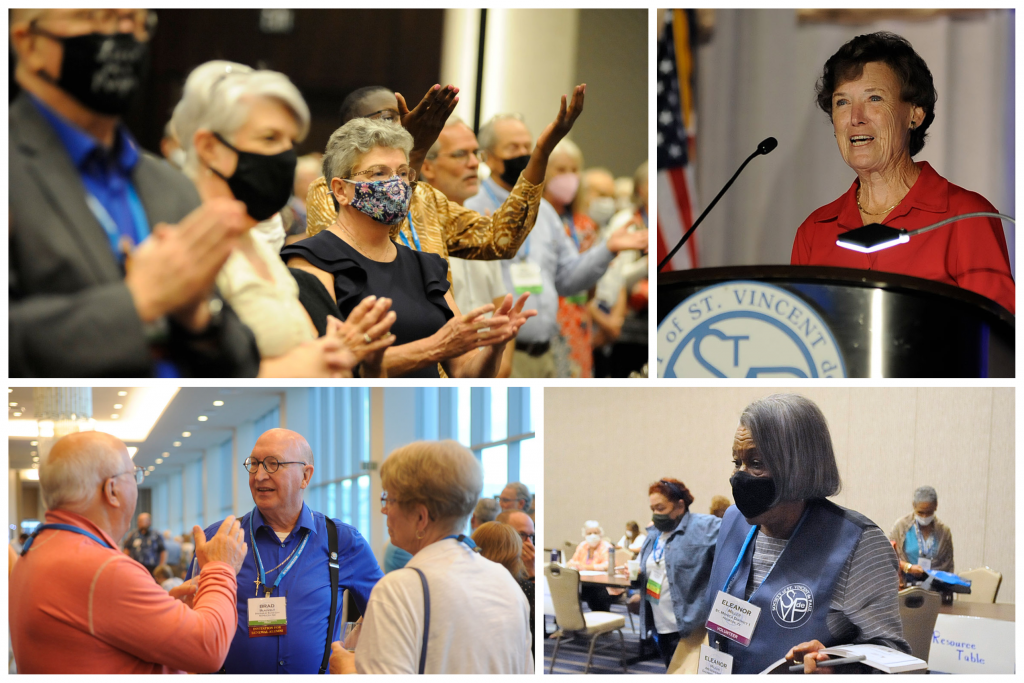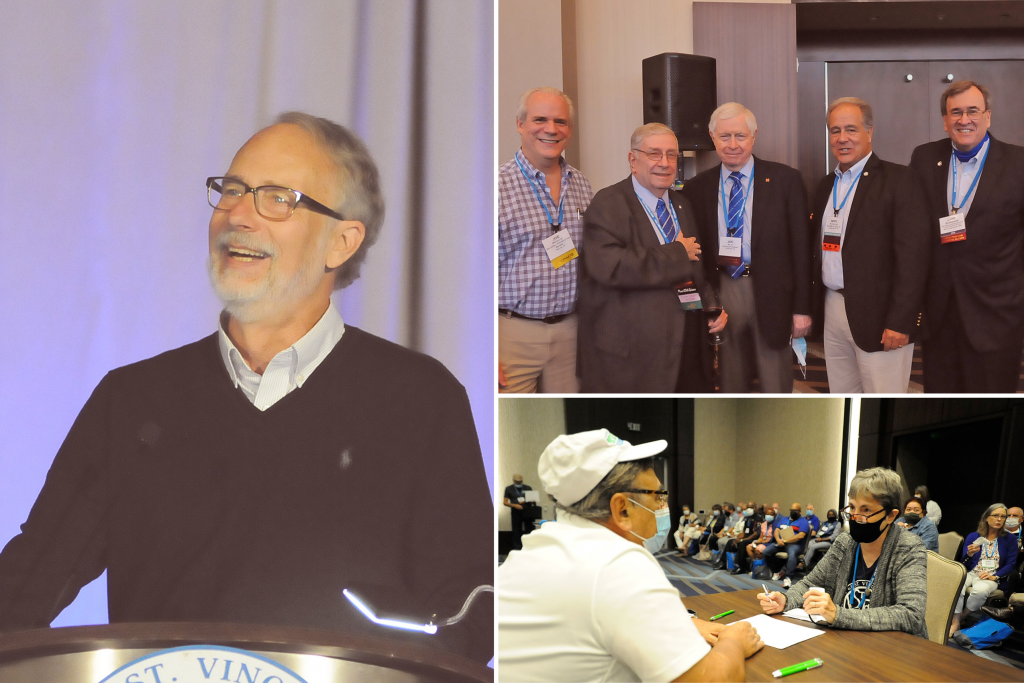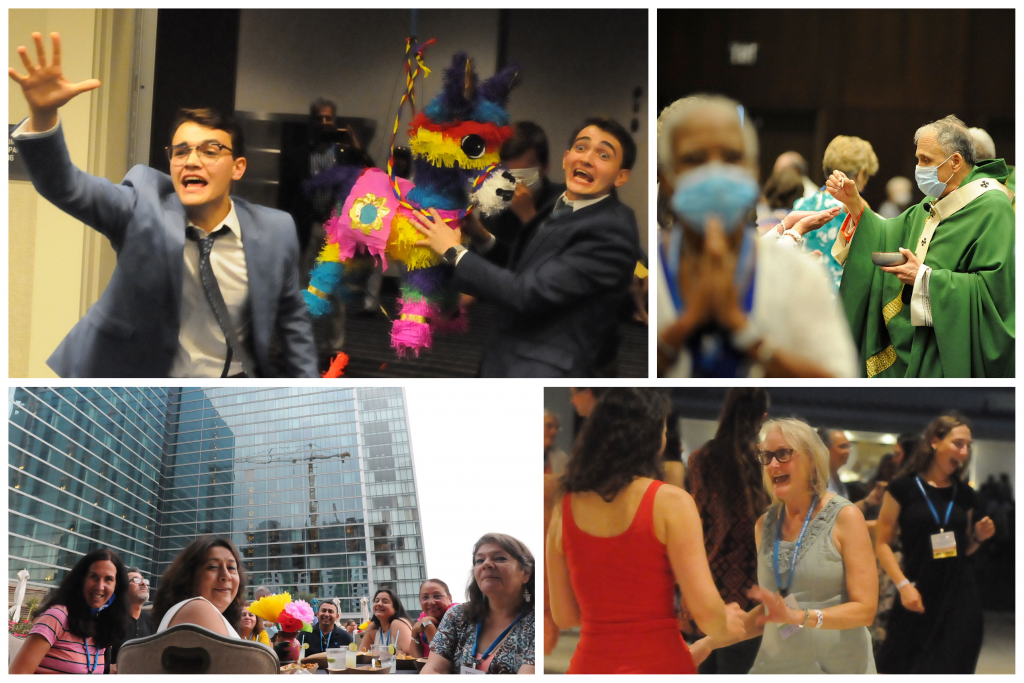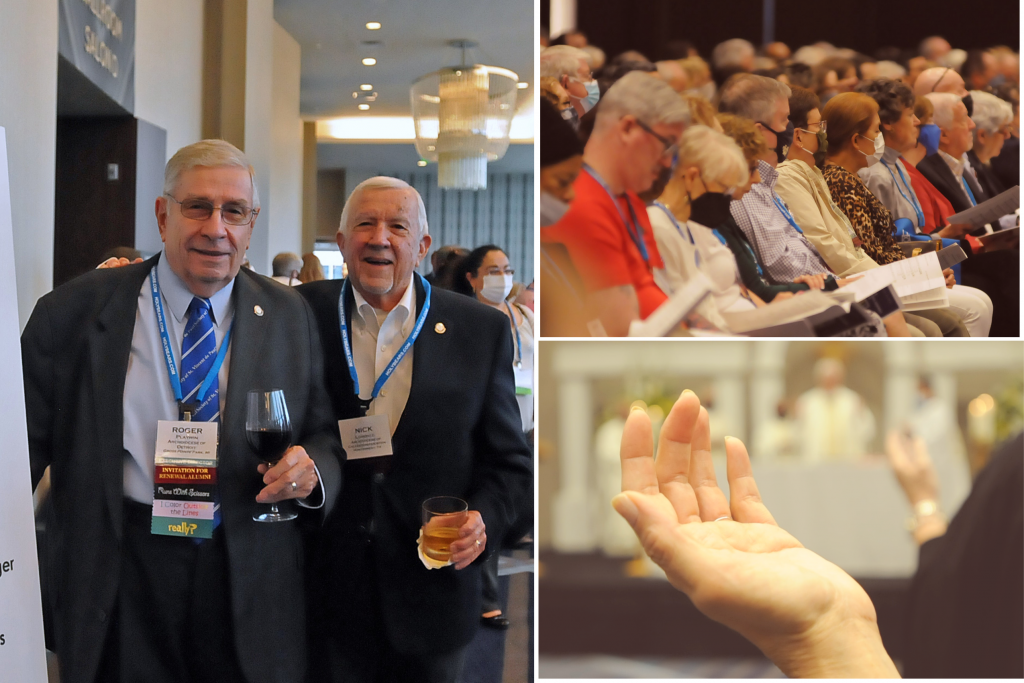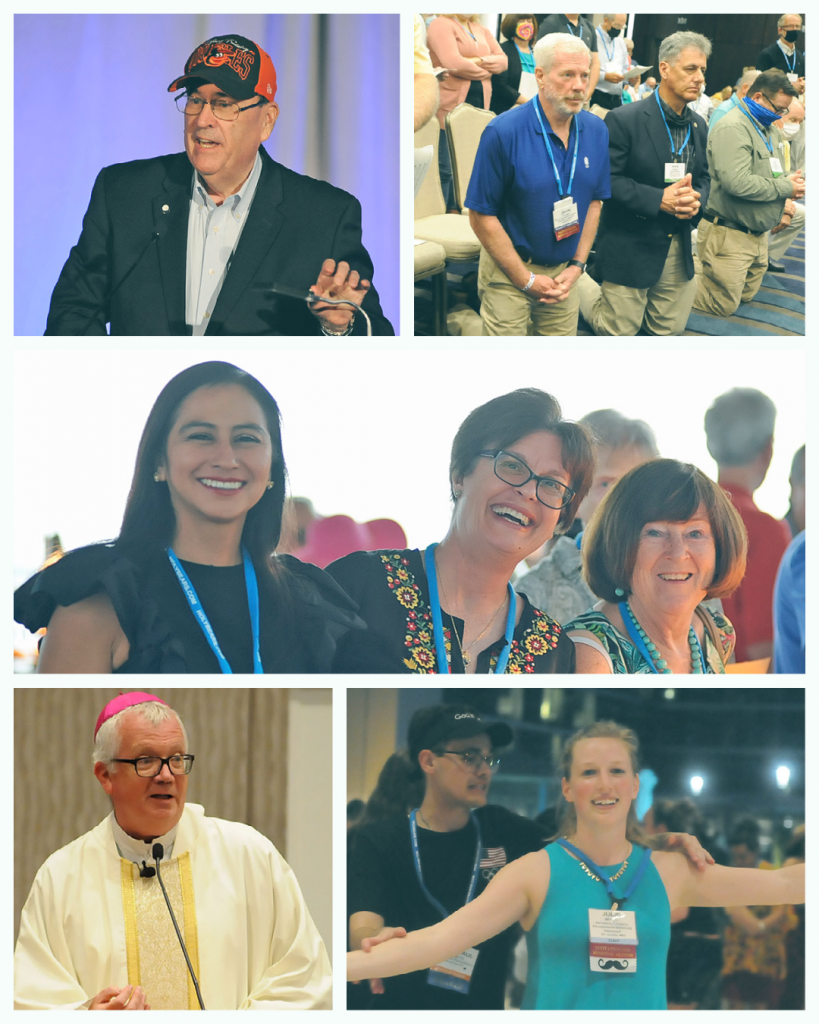This isn’t a stores column, but let’s use a store as an example. When reviewing a Thrift Store, I always request that the manager and I close our eyes and we suddenly appear in the middle of the store. What do we see, and what is the store trying to tell us?
In a recent overseas stores tour, the request led me to see a lot of signage about sustainability. That’s a fairly new term for what stores used to call “reuse, renew, and recycle” to which all Thrift Stores can contribute. While such sustainability is a great stores benefit and certainly a very Catholic objective, it is not why we operate our stores. Rather it is one of many good business practices we undertake in the course of our work.
Thus a second and most important question, for all our works: Why don’t we tell more people about our actual mission in what we do to meet it?
Our mission is to bring people to holiness, done through the serving of the poor, assisted with the operations and revenues of, in this example, the store. Our members often complain that no one knows enough about the Society. However, we continue to tell them only what we do. What we often fail to tell them is who we are.
It is natural to confuse activity with intentions. Our communities see our food pantries, pharmacies, and other programs, and so assume that these are the Society’s mission. Even worse, for privacy reasons we purposely don’t show the public our core Home Visit service, so they have no evidence that this is any aspect of our Society’s mission. At best they know we “help the poor,” and because that’s often enough to stimulate donations and good will from most people, we leave well enough alone.
This might all be fine if our mission was to attract volunteers and funds to help our neighbors in need. That’s dangerous thinking because many good people don’t need a faith basis to be charitable. As pro football coach, Bill Parcells once said, you are what your (win-loss) record says you are. What does our Society program, signage and advertising “record” say we are? Could we easily be confused with another social services organization, another used goods store, or a parish ministry?
Marketing people look for the “unique offering” that distinguishes you from the competition, and hopefully provides an advantage in attaining organizational goals. A unique offering of the Society in a few words is that we offer our members the chance to see the face of Christ. That’s one heck of an offering, right?
We are not embarrassed by our Catholic faith, nor by our members being driven by it to serve the poor. We can be much more intentional about this in our materials messaging, signage, and especially in our language. When asked what the Society does, the proper response might be different for a parishioner than someone else, and that’s fine. Whether the response is, “We help our members grow in holiness through serving the poor,” or “We are Catholics and others who put our faith into action by serving the poor,” at least both point to the same north star of our mission. Yes, we accomplish lots of other good outcomes! We provide sustainable solutions for clothing and household goods. We make efficient use of medications and food supplies to help the most needy. We pay rent and utility bills. We teach neighbors how to be more self-sufficient. We advocate. We do all this and so much more, which, again, is fantastic.
Let’s not confuse what we do, though, with who we are. Others, perhaps many others in our community, can do what we do. No one else is who we are, the members of the Society of St. Vincent de Paul. We are not simply good people doing good works, we are disciples. And we pray that others will join us and share in our vocation.
I invite you to close your eyes during your Vincentian service, and then re-open them. With this fresh view, what do you see? Do others see it too?
Yours in Christ (see, isn’t that easy?),
Dave Barringer
CEO

